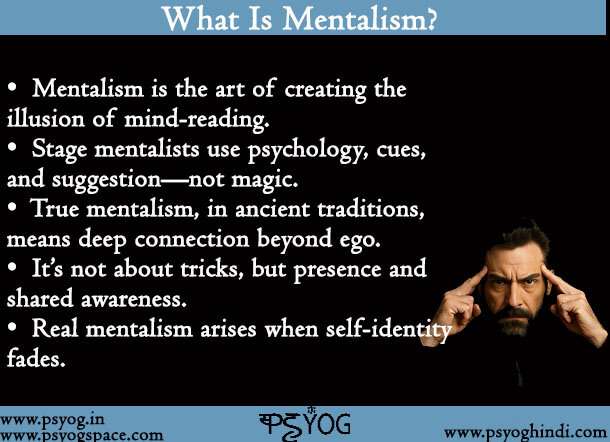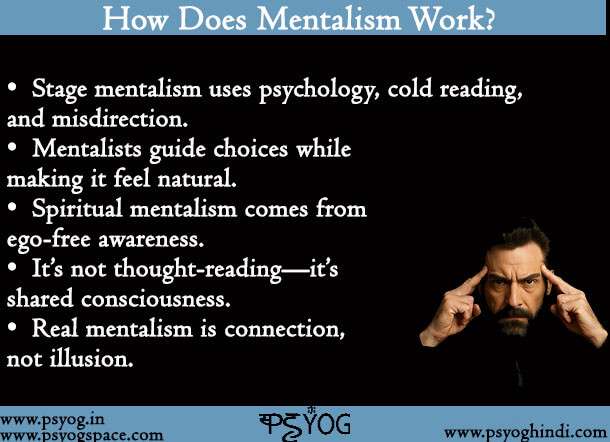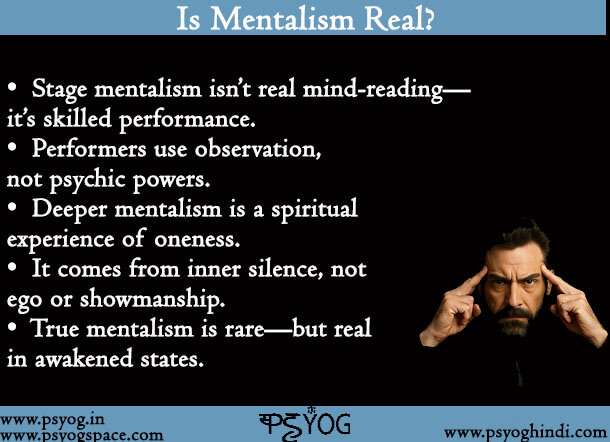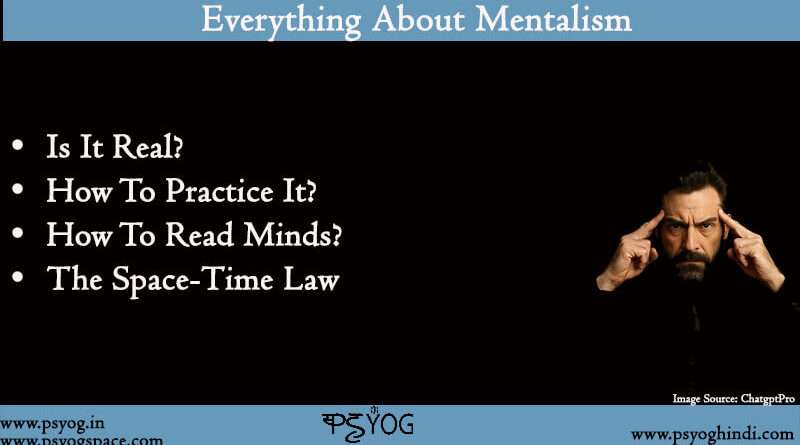Mentalism: How Does Mentalism Work, What It Is, Is It Real?
I’m sure that you have seen all those people who seem to know exactly what you’re thinking. It appears as if they can reveal the name of your childhood pet or predict the number you’re about to say. It’s impressive—almost magical. This is the world of mentalism, a fascinating blend of illusion and psychology. But there’s more to it than meets the eye. In this article, we’ll explore what is mentalism, how does mentalism work, and ask the big question—is mentalism real?
What Is Mentalism
To keep it simple, mentalism is the art of making people believe you can read minds, influence choices, or even predict the future. But let’s be honest: most of what you see in shows or videos isn’t actual mind-reading. Performers who call themselves mentalists are basically masters of tricks. They know how to read body language, pick up on tiny cues, and steer your thoughts without you realizing it. (Read: A calm mind is a must for mental magic. See how yogis to that)
So, what is mentalism really? On stage, it’s a polished illusion—a smart play on human psychology. But on a deeper level, it points toward something more meaningful. Many ancient spiritual traditions talk about a kind of mentalism that’s not about trickery at all. It’s about truly connecting with others on a level beyond the mind.
This kind of mentalism has nothing to do with flashy performances. It comes from going beyond the idea of being a separate self. When you stop identifying so strongly with your body, your name, your story—you start to see things differently. You don’t just guess what someone is thinking; their thought feels like it arises in you. That’s not performance—that’s presence.

How Does Mentalism Work
Let’s break this down from both sides.
In the world of stage shows and TV specials, how does mentalism work? It’s all about skill, preparation, and knowing how people behave. Mentalists use techniques like cold reading (making educated guesses based on subtle hints), misdirection, and wordplay. They’re experts at steering
your attention and making you feel like you freely chose something—even though they nudged you into it.
But that’s not the whole story. If we look beyond the spotlight and into ancient wisdom, we find a different answer to how does mentalism work. In spiritual terms, it happens when someone moves beyond the physical self—beyond ego, beyond identity. When you let go of the belief that you’re just this one person in a body, something opens up. You begin to experience a kind of mental silence that connects you with everyone and everything.
In that space, you’re not reading someone’s thoughts—you’re not separate from them. Their thought is also your thought. It’s not magic. It’s oneness.

Is Mentalism Real
Here’s the question that really gets people thinking: is mentalism real?
If we’re talking about what you see on stage or in viral videos, the short answer is no—it’s not truly real. It’s impressive, for sure. But it’s an act. The performer has spent years learning how to make it look like they can read minds. They’re not psychic—they’re just incredibly observant.
But that doesn’t mean mentalism is all fake. So, let’s ask again—is mentalism real, in a deeper sense? (Read: You will be shocked to know that how believers insult god)
Yes, it can be. But not in the way most people think. True mentalism is more like a spiritual ability than a stage act. It requires years of inner work—meditation, detachment, self-inquiry. It’s about letting go of the “me” that wants to impress others. It’s not about entertaining an audience. It’s about dissolving the walls between you and the world.
People who’ve walked deep spiritual paths often speak of moments when there’s no separation. In those moments, thoughts are shared, feelings are understood without words, and everything becomes clear without trying. That kind of mentalism is rare, and it’s definitely real.

Conclusion
So, where does all this leave us?
Mentalism is a fascinating subject because it lives between two worlds. In one world, it’s performance—clever, calculated, and captivating. In the other, it’s something sacred—a glimpse into the possibility that we are more connected than we think.
To recap:
What is mentalism? It can be a show, or it can be a spiritual practice.
How does mentalism work? Through tricks and observation on one side—or through silence and surrender on the other. (Read: Inner stillness and god)
Is mentalism real? As a performance, not really. As a spiritual reality? Absolutely.
At its core, mentalism invites us to look beyond the surface—both of what we see and of who we think we are. And maybe that’s where the real magic begins.
FAQs
How can I learn mentalism?
Authentic mentalism is an occult practices wherein one can operate beyond physical laws od time-space and separation. To do so, we must learn how to disconnect from our physical self and transition into a non-physical dimension where there is no separation.
How do mentalists guess what you're thinking?
Mentalists do not guess what you are thinking, rather they feed ideas to your mind through several ways like hand gestures, affirmations, and so on, and they make you think what they want you to. In reality, we cannot read anyone’s mind till we are stuck to physical laws.
However, in the world of mysticism, this becomes possible.
Is mentalist real or fake?
What we see on television is just trick work. It is more of an entertainment. True mentalism is an occult practice wherein a being gains mastery over physical laws and can operate beyond space-time. That takes years of practice and discipline.



